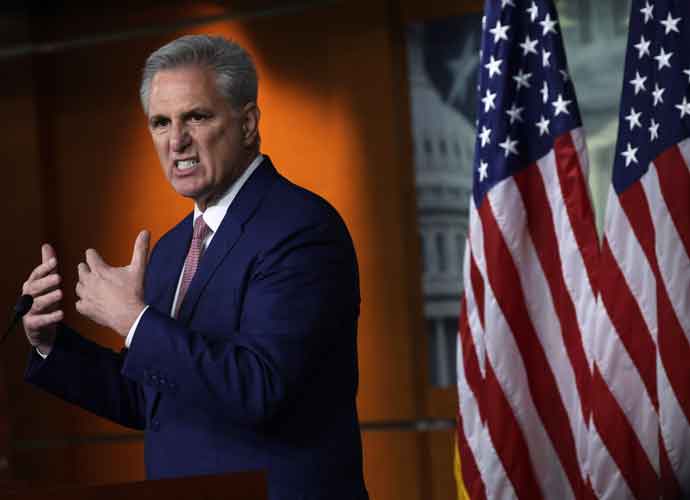McCarthy Fails To Win Enough Votes For Speaker On First Two Ballots, Jeffries Is Top Vote-Getter
California Republican Rep. Kevin McCarthy was blocked on two ballots by his conservative colleagues in his bid to become House speaker on Tuesday morning.
On the first ballot, McCarthy got 203 votes, leaving the 19 Republicans who refused to vote for him to cause the vote to move to a second ballot. Voting will continue until someone garners 218 votes. The other GOP House members that received votes included Reps. Andy Biggs (Arizona), Jim Jordan (Ohio), Jim Banks (Indiana) and Byron Donalds (Florida). Former Rep. Lee Zeldin (New York) also got a vote.
A second ballot was needed for the first time in 100 years as McCarthy fell short by around 15 votes. Though the threshold needed is 218 votes, it’s possible that McCarthy, who has served as House minority leader since 2019, wins with fewer than that. A circumstance in which enough people don’t vote or vote “present” could lower the threshold needed to become the next House speaker.
Jordan was nominated by Rep. Matt Gaetz (R-Florida) and has garnered 19 votes. Jordan, however, says he stands behind McCarthy.
Subscribe to our free weekly newsletter!
A week of political news in your in-box.
We find the news you need to know, so you don't have to.
“I like his fight, I like his tenacity,” Jordan said of the California Republican.”We need to rally around him.”
Jordan went on to emphasize that it is important that Republicans unite to vote for McCarthy, noting that the differences between him and his colleagues “pale in comparison” to the differences between Republicans and Democrats.
McCarthy has also appeared to fall short of the vote threshold on the second ballot.
The White House said this afternoon that President Joe Biden has no plans to interfere in the speaker vote.
Democratic leader Hakeem Jeffries won the most votes with 212, six short of winning the speakership.
Get the most-revealing celebrity conversations with the uInterview podcast!









Leave a comment